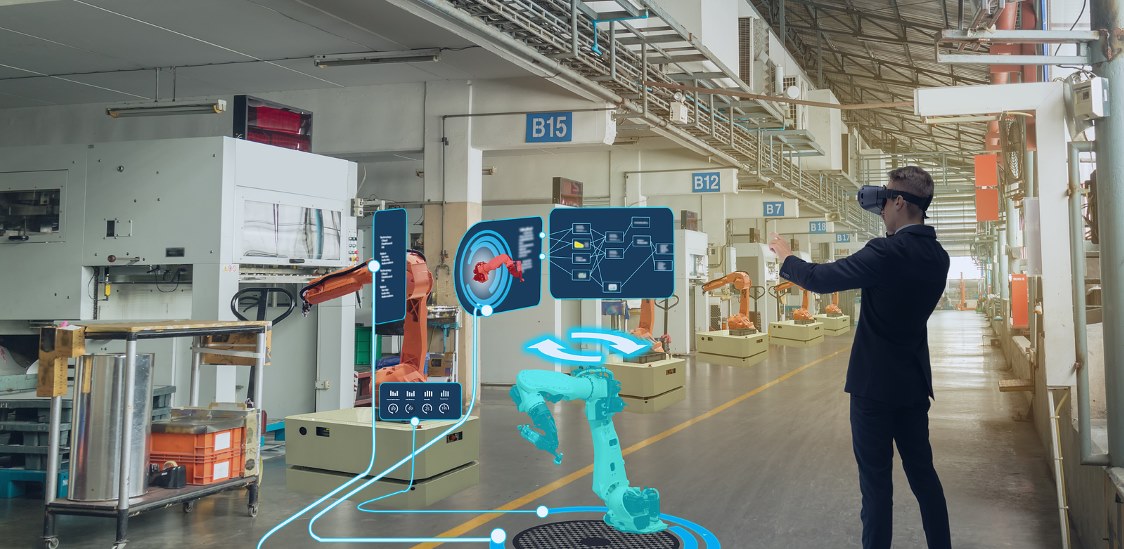In an era driven by technological advancements, the American industry is undergoing a transformative journey fueled by AI. With technology quickly infiltrating every aspect of the modern workplace, one of the most pressing challenges companies face is a widening talent gap, as skilled workers become increasingly scarce. With the unemployment rate at a historical low, manufacturing companies have been hit especially hard by the ongoing labor shortage. As experienced workers retire and younger generations shy away from industrial jobs, the shortage of technically skilled labor may be a bigger concern to the future of the industry than any other.
Factory jobs have a poor perception in the eyes of younger generations. A recent survey found that only 14% of Gen Z-aged individuals would consider industrial work as a career, and 26% would consider it for a short-term job. Meanwhile, manufacturing remains integral to powering our everyday lives, from the phone in your hand to the gas heating your homes.
Luckily, technology provides some solutions to this challenge. Generative AI has taken over as companies in every industry scramble to remain competitive and benefit from new technologies, enabling forward-thinking manufacturers to address this skills shortage with new solutions. AI can help companies unlock new possibilities in recruitment and training, automation and collaboration that will not only address talent shortages and internal skills gaps but also position themselves at the forefront of their industry.
AI improves training and recruiting
Half the battle of utilizing technology is in staying up to date with the newest tools, which often come with a learning curve, especially for those in traditionally non-technical industries. To bridge this gap, companies can use AI to create customized training programs tailored to the specific needs of factory operations. AI-powered onboarding and training platforms analyze the performance data of existing employees to identify areas of improvement and generate personalized training modules targeted to the strengths and weaknesses of each individual. Combined with hands-on training, these programs ensure that workers acquire the knowledge necessary to operate sophisticated machinery and handle complex tasks.
In addition to training programs, AI tools are revolutionizing the recruitment process for manufacturing companies. Advanced algorithms analyze resumes, job applications, and online profiles to identify potential candidates with the right skills and experience. These tools significantly expedite the hiring process, helping factories quickly fill positions that are crucial for maintaining seamless operations.
Automation increases productivity
Factories are increasingly adopting AI-powered automation and robotics to compensate for the shortage of skilled labor. Smart machines equipped with computer vision, natural language processing, and machine learning capabilities can perform intricate tasks, reducing the reliance on human labor for repetitive and potentially hazardous jobs, allowing people to prioritize the high-value aspects of their role.
AI can also tackle the administrative tasks that are important but tedious and time-consuming, like documentation, data entry and analytics, and scheduling. While any AI deployment requires careful human oversight, it also makes sure people can spend more time on more productive, business-critical tasks.
AI works alongside humans
When it comes to AI, people’s biggest fear is the threat it poses to their jobs, but companies that implement AI know its real strength lies in how it supplements their existing workforce. Robots designed to work alongside human employees are becoming a common sight in modern factories. These AI-driven robots are equipped with sensors that enable them to collaborate safely with their human counterparts, handling routine tasks and freeing up skilled employees to focus on more complex responsibilities.
The integration of AI in factories is not just about filling talent gaps; it's about revolutionizing the entire manufacturing landscape. By leveraging AI in training and automation, factories can thrive in a rocky economic environment where skilled labor is in short supply.
As factories continue to embrace these AI-driven solutions, they not only address immediate talent shortages but also position themselves at the forefront of innovation. The synergy between human expertise and AI capabilities is creating a manufacturing ecosystem that is not only efficient but also adaptive to the ever-evolving demands of the industry. The future of manufacturing lies in AI, and the journey has only just begun.






















